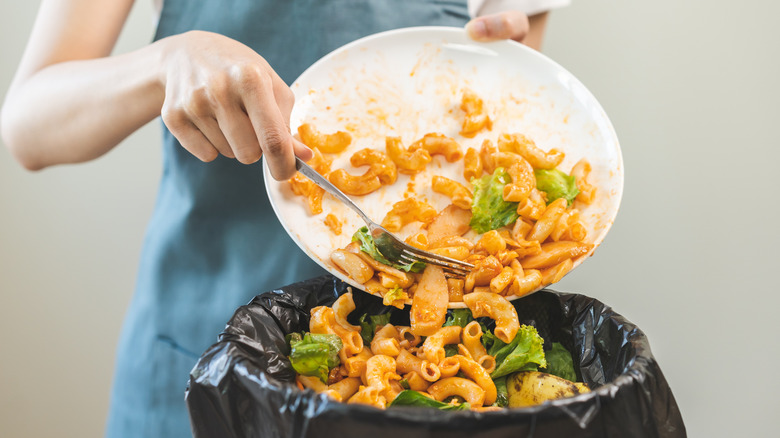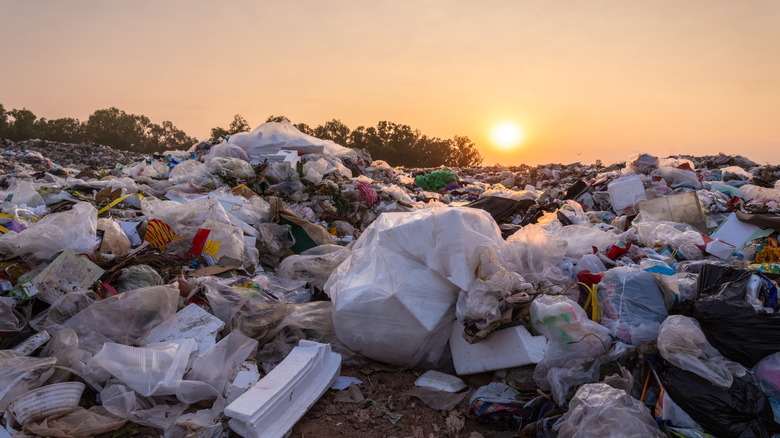Why It's Illegal For Commercial Retailers To Throw Food Away In Some States
You walk past the nearest bakery's dumpster and spot a perfectly good pie. What's wrong with it? Nothing ... except it ended up in the trash. Unfortunately, edible food that's still intact gets tossed all the time, whether it's deli trays that just expired, produce deemed "too ugly," or items nearing their sell-by/use-by date. In some states, that's no longer just wasteful; it's also illegal for large commercial entities.
In an attempt to reduce food waste, laws have been passed in certain parts of the U.S. that ban businesses like supermarkets, large farms, or food manufacturers from sending food waste to landfills or incineration — forcing them instead to compost, donate, or otherwise divert that food. So what's the ultimate goal? Do what we can to at least put a dent in trying to reduce environmental harm (especially methane emissions), save resources, and help fight food insecurity.
These laws don't apply everywhere, and they don't kick in at small scales. Usually, the ban targets commercial generators of large volumes of organic waste, such as businesses that produce tons of food scraps each week. States like Massachusetts have been doing this for years; more recently, others (such as Maine) have also approved legislation banning "institutional food waste" for supermarkets and grocery stores, manufacturers, and institutions from just dumping edible or compostable food waste.
What these laws look like and why they matter
While food waste bans sound straightforward, the logistics behind them reveal just how complex the problem really is. Once a supermarket or food processor is no longer allowed to send organic waste to the dump, they have to figure out where it goes next. In many states, this has meant building partnerships with regional composting facilities or food banks equipped to handle large volumes.
Composting turns scraps into soil amendments that can go back into agriculture, while food donation keeps edible products in circulation. But both solutions require infrastructure — trucks, staff, sorting systems — that not every region has in place. That's one reason why these laws often roll out gradually, starting with the largest producers located near processing facilities before expanding to smaller players.
Another layer is enforcement. For example, Massachusetts has inspectors who monitor compliance and can levy fines against businesses that fail to separate food waste from regular trash. Vermont's approach under Act 148 was broader, banning food scraps entirely from landfills, so households and restaurants had to adapt right alongside supermarkets.
California, through SB 1383, went further by setting statewide targets for both waste reduction and food donation, requiring businesses to track how much surplus food they send to charities. Each state's strategy underscores the balancing act of pushing businesses toward better practices while making sure the infrastructure is there to support them. The bigger picture is clear, though; by treating food scraps as a resource instead of garbage, states are reframing waste management as part of both climate action and community support.


